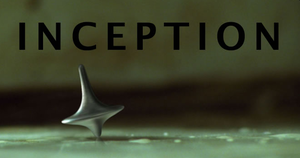[Seed of the discussion (in QUORA https://www.quora.com/What-is-the-best-or-any-defensible-methodology-for-finding-the-truth/answer/Alberto-Mart%C3%ADn-2): A young (so I thought) good-natured and apologetic woman made an excellent remark to a leading Question about science and consciousness, though the question was in fact as per the link above. I then tried to support her and, soon after, a rumbustious, self assured ‘pro-science’ male person (Y) entered and started the fray.]
I (X) to the woman: ‘Why did you not just stay with the unquestionable, direct experience of what you are as you stated it? Yes, it is unprovable, to others, that is, but it is truth with capital T. You touched gold, but then covered it with everything else you added’.
— “That which is the subtle essence – in that have all beings their existence. That is the truth. That is the Self. And that, O Svetaketu, THAT ART THOU.”‘ (From Chandogya Upanishad).
Y – ‘Entered’ and made some deprecatory remarks about the foregoing, all in defense of science and against spirituality or metaphysics (for him “making stuff up”):
“science of the spirit”.
Is that anything like engineering of the pixies?
X – Yes, that expression is puzzling and, in principle may be unconvincing, but not so in India, where the foremost philosophy (Shankara’s) is actually neither philosophy, theology, or science per se, but a combination of them all; no compartmentalization there, as is usual in the West. And it is not a blending of spirituality with (empirical) science, which I do not find satisfatory as it is recently being espoused also in the West. It is ‘science’ in a wide, comprehensive sense, definitely to do with knowledge – primarily intuitive knowledge, plus reasoning – for which one needs to be immersed during a usually long time in reading (or ‘hearing’), reflection, and ‘contemplation’. If one studies, e.g. ‘Vedanta or the Science of Reality’, by K. A. Krishnaswami Iyer, one can appreciate that it is not a joke, by any means; this book contains a comparative account of the Indian tradition of the Upanishads and Western philosophical systems.
Y – You are playing fast and loose with the word “science”. There is nothing, nadda, zip, zilch, zero in the philosophy of Adi Shankara related to science. it is simply more mystical woo woo.
Make a falsifiable hypothesis regarding “spirits” or regarding Nirguna Brahman or any other religious drivel, and then we’ll talk.
X – If you want to narrow your mind, despite the options it has in terms of getting an understanding of difficult matters, which can only be proven to oneself – not to others – by analysis, introspection, and meditation, it is up to you. The word ‘science’ comes from the Latin ‘scire’ – to discern, distinguish, and this is what, at least myself, am talking about. You write off mysticism because it cannot be proven in the lab or with the tools of empirical science, and put so much stock in the (provisional) notion of falsifiability… again, up to you. That is scientism or reductionism – a narrow view of what constitutes reality, which is immense, ultimately unfathomable.
Y- Your comments regarding the etymology of “science” are terrific, that is frightening, or in this case frighteningly bad. You see the etymology or the root of a word is not its meaning. Science has a specific modern meaning that I’m sure you are well aware of, and bastardizing that meaning in this context is self serving hoey. The philosophy and theology of Adi Shankara has nothing whatsoever to do with science. Unless of course you redefine the word to mean whatever you want it to mean.
And I’m sorry, but the old “narrow mind” argument is simply what gets shoveled out of the male bovine pen. Having an open mind does not mean simply accepting any old tosh simply because you like it, or because it is part of the proud tradition of my culture or some such nonsense. Being open-minded means being open to evidence. Please provide some evidence that any mystical experience has any relevance outside the brain of the person experiencing it; if you can’t then any comment you make about it is just making stuff up, and has no more relationship to reality than any other religious rubbish. Continue reading →


